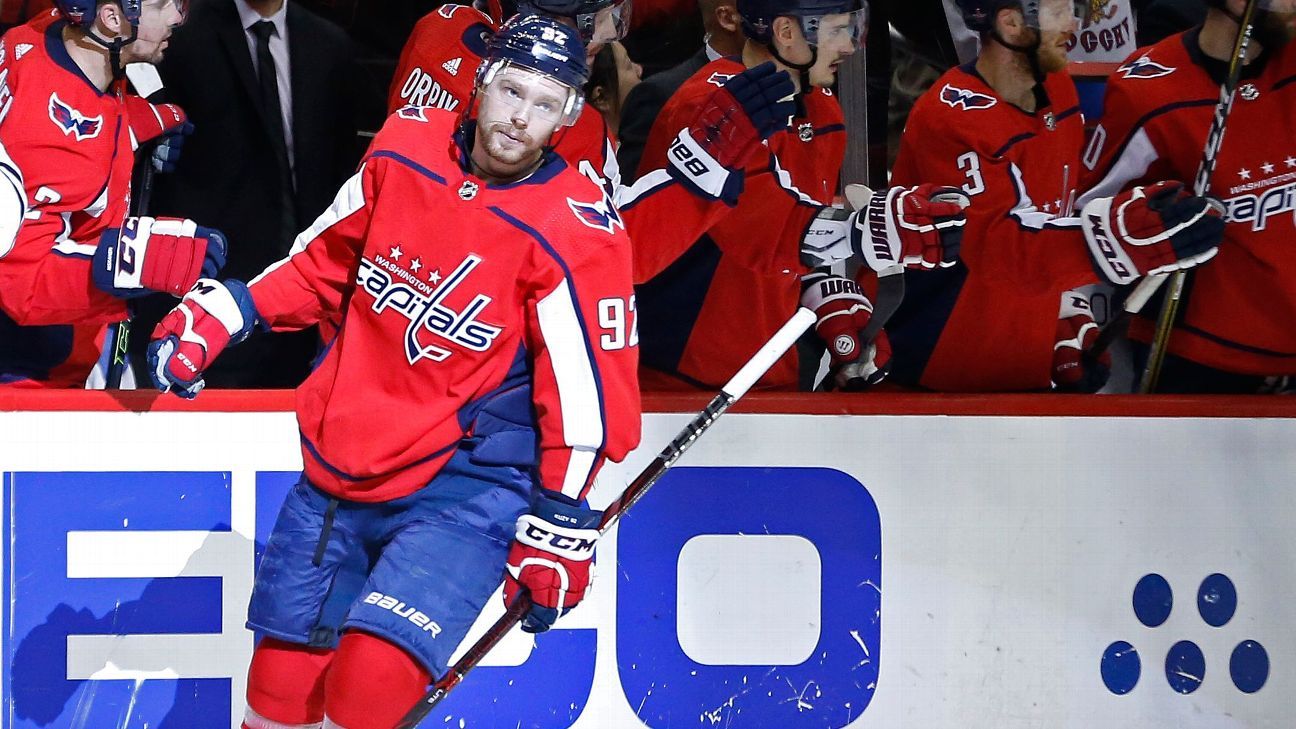
Washington Capitals forward Evgeny Kuznetsov has been suspended three games for inappropriate conduct, the NHL announced Saturday.
Kuznetsov tested positive for cocaine at the 2019 IIHF World Championship on May 26. He will not appeal the suspension.
"I am once again sorry that I have disappointed my family, my teammates, and the Capitals organization and fans," Kuznetsov said in a statement. "I promise to do everything in my power to win you back with my actions both on and off the ice. I also understand that I am fortunate to have an opportunity to make things right.
"Thanks to the Capitals, NHL, and NHLPA, I have taken many steps in the right direction and I'm confident that I will continue on that path. I am grateful for everyone's support and I'm looking to move forward from this point. While I can appreciate that people may have additional questions, I will not be commenting further on this matter."
NHL commissioner Gary Bettman met with Kuznetsov and NHLPA representatives on Monday.
Kuznetsov, 27, is under contract with the Capitals through 2024-25 and competes internationally for Russia, which won the bronze medal in May.
In May, Kuznetsov appeared in a now-deleted video that surfaced on social media in which he was sitting in a hotel room near lines of a white, powdery substance. Kuznetsov denied ever taking drugs. The NHL launched an investigation into the incident that it swiftly closed after five days.
The International Ice Hockey Federation announced in August that it had suspended Kuznetsov from international play for four years -- until June 12, 2023.
Kuznetsov led all NHL players with 32 points (12 goals, 20 assists) in the 2018 playoffs, which culminated with the Capitals winning the franchise's first Stanley Cup. He had 21 goals and 51 assists last season for the Capitals, who were eliminated in the first round of the playoffs by the Carolina Hurricanes.
"He realizes he makes mistake," captain and fellow Russian Alex Ovechkin said Thursday. "Sometimes the best thing is just support him and be at his side."
The NHL tests its players for drugs of abuse such as cocaine and marijuana. However, according to the NHL and NHLPA's joint substance abuse and behavioral health program, players are not suspended for positive tests. Rather, if the program administrators flag "abnormally high levels" of any substance, the veil of anonymity is lifted and doctors can recommend treatment. The player is not required to enter the program if he doesn't want to.
ESPN's Emily Kaplan and The Associated Press contributed to this report.















 Phone: (800) 737. 6040
Phone: (800) 737. 6040 Fax: (800) 825 5558
Fax: (800) 825 5558 Website:
Website:  Email:
Email: 






